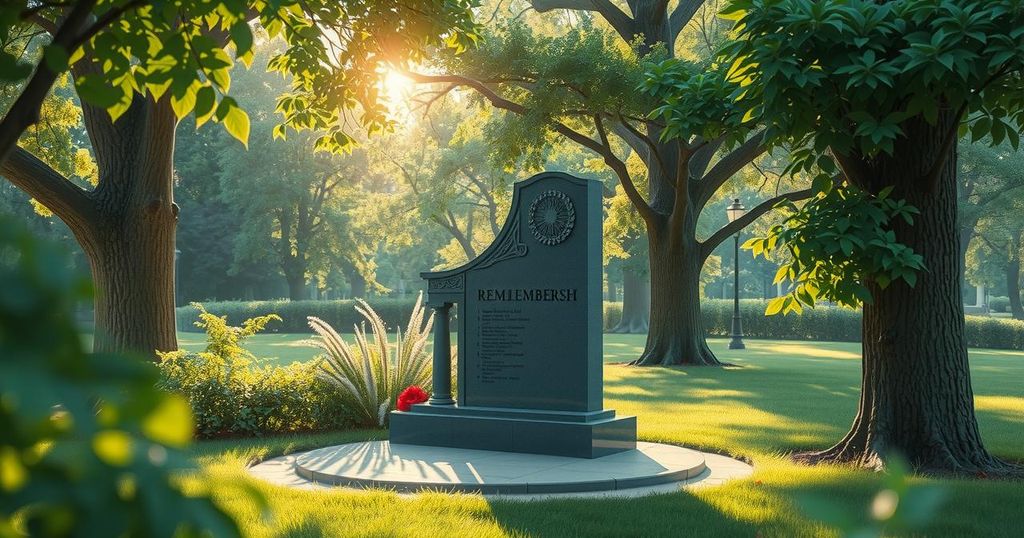Carencro Commemorates Lynching Victims with Unveiling of Historical Marker
Carencro unveiled a historical marker honoring lynching victims Louis Senegal and Antoine Domingue, marking the first recognition of such victims in Lafayette Parish. The event aimed to raise awareness of the history of racial terror lynchings. Community members, including descendants, gathered to remember the lives of these men and reinforce the importance of historical acknowledgment and reconciliation.
The Carencro community has officially unveiled a historical marker dedicated to Louis Senegal and Antoine Domingue, two Black men who were lynched in the late 19th and early 20th centuries. This marker, located at 409 Veterans Dr., stands as the first recognition of lynching victims in Lafayette Parish. Its purpose is to raise awareness about the grim history of racial terror lynchings while fostering reconciliation within the community.
During an emotionally charged ceremony, members of the Carencro community honored the memories of Senegal and Domingue, whose lives were tragically cut short. The marker ceremony, conducted by Move the Mindset and the Lafayette Parish Community Remembrance Project, took place on March 29 and serves as a permanent tribute to the victims of racial violence that afflicted the Southern United States during that era.
Ola Prejean, the president of Move the Mindset, emphasized the need for acknowledging this dark period in American history. She stated, “It was, of course, during a time when white campers and white supremacy took over the legal system. They took the law into their own hands whenever they felt the need to.” Prejean highlighted the significance of the marker for educating residents about the violent legacy of lynchings that impacted countless lives.
The historical context surrounding Senegal and Domingue illustrates the chilling legacy of racial terror. More than 6,500 Black individuals were lynched across the country between 1865 and 1950, with 615 victims identified in Louisiana, including six from Lafayette Parish. This newly unveiled marker is particularly noteworthy, as it serves as the first acknowledgment of lynching victims within the parish.
Prejean also noted the importance of recognizing these historical figures, stating, “There is a chance for truth-telling, acknowledgment, and reconciliation around these tales.” She emphasized that Senegal and Domingue’s stories remain largely unwritten in history, representing a crucial aspect of the collective memory that needs to be shared and understood.
As part of the community gathering, Maya Senegal, a descendant of Louis Senegal, expressed the significance of this day for her family. “This is a blessing,” she remarked, reflecting on her long journey of tracing her ancestry. Maya emphasized her commitment to preserving her great-great-grandfather’s story for future generations, stating her hope that her children will continue to cherish their family’s history.
In summary, the unveiling of the historical marker in Carencro serves as a poignant reminder of the racial violence faced by Louis Senegal and Antoine Domingue. It aims to educate the community about this dark chapter in American history while promoting reconciliation and remembrance. The event has sparked a renewed commitment among descendants like Maya Senegal to preserve and share their family histories, ensuring that the stories of those lost to lynching are not forgotten.
Original Source: www.theadvertiser.com




Post Comment